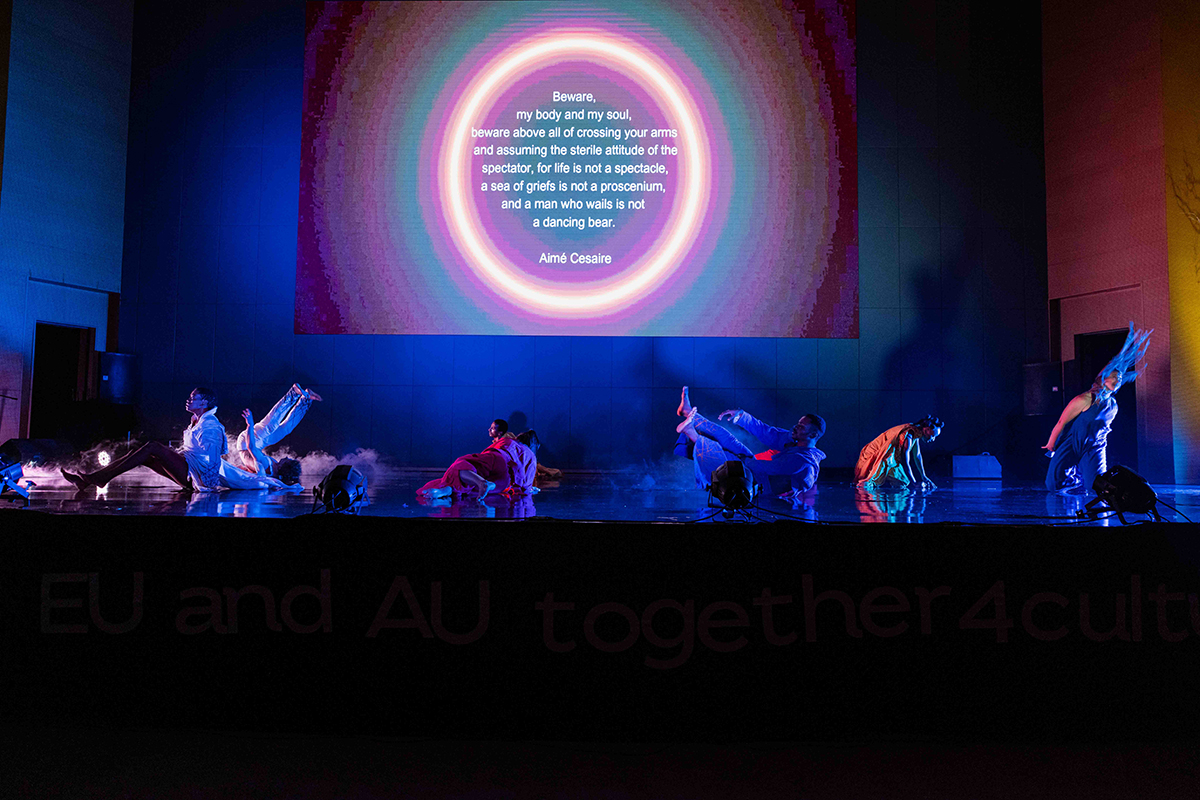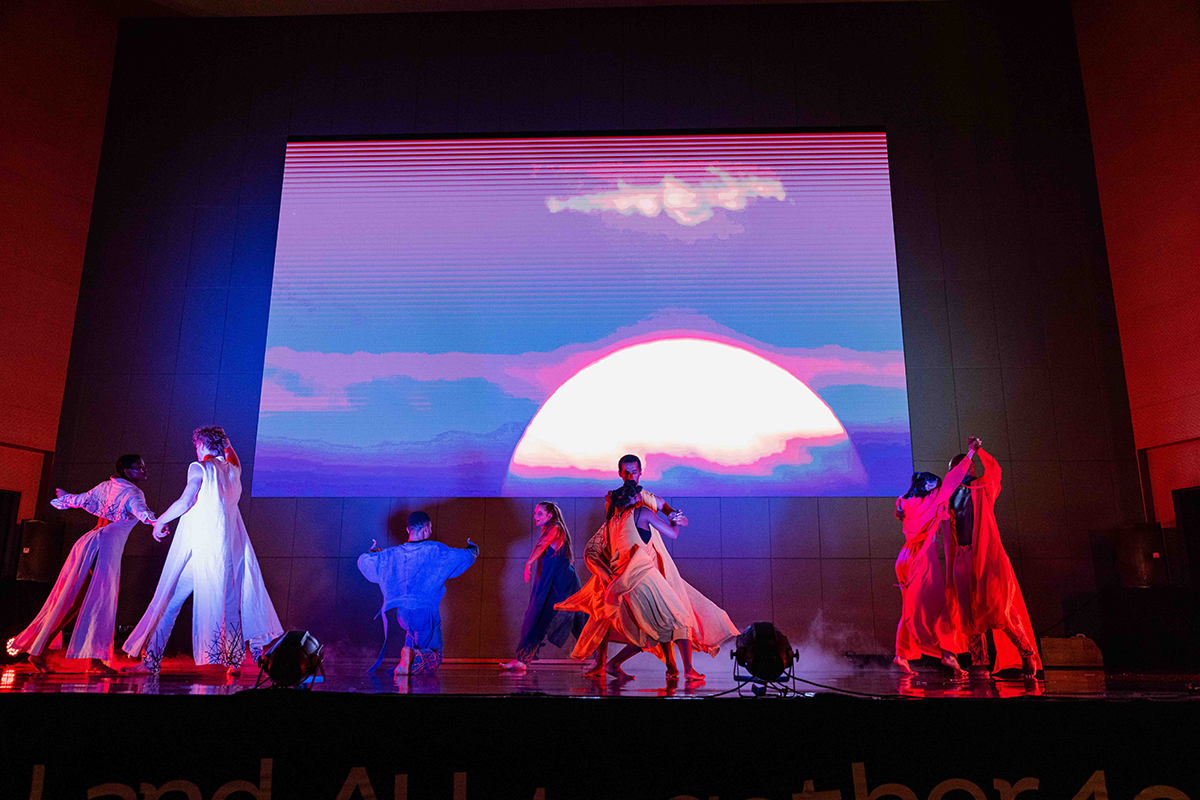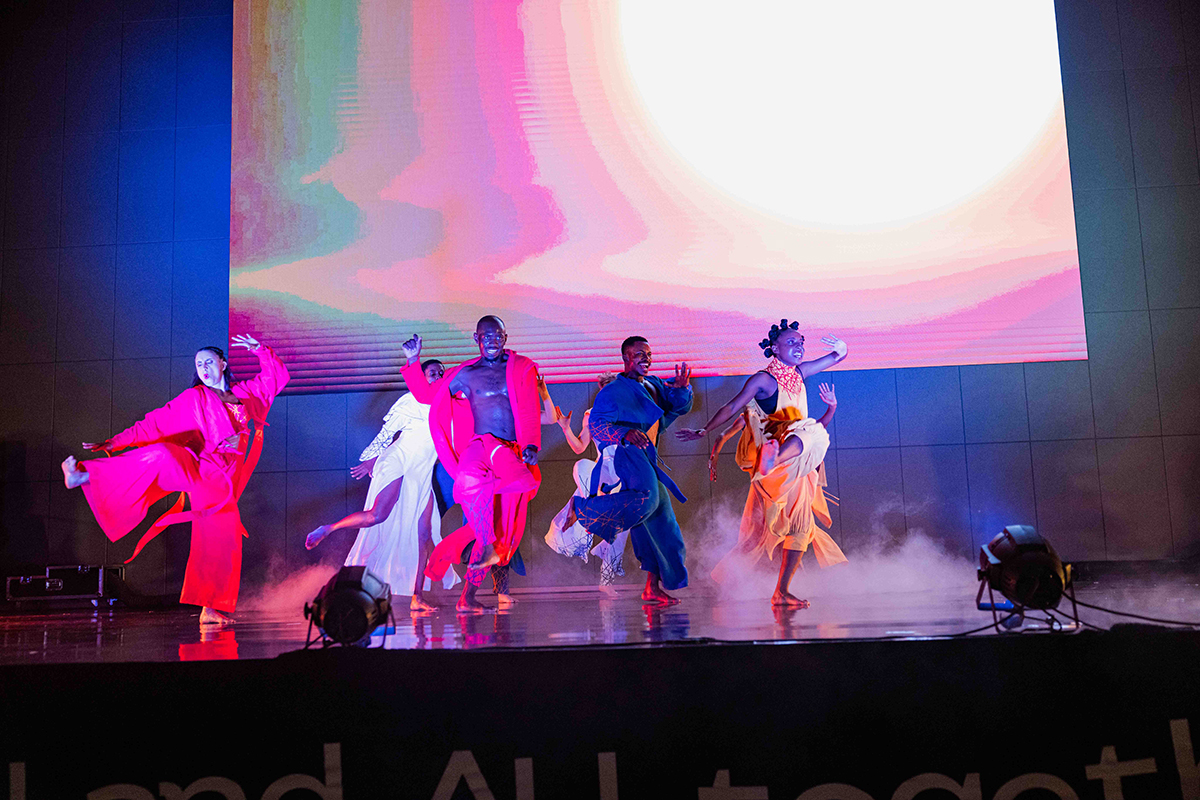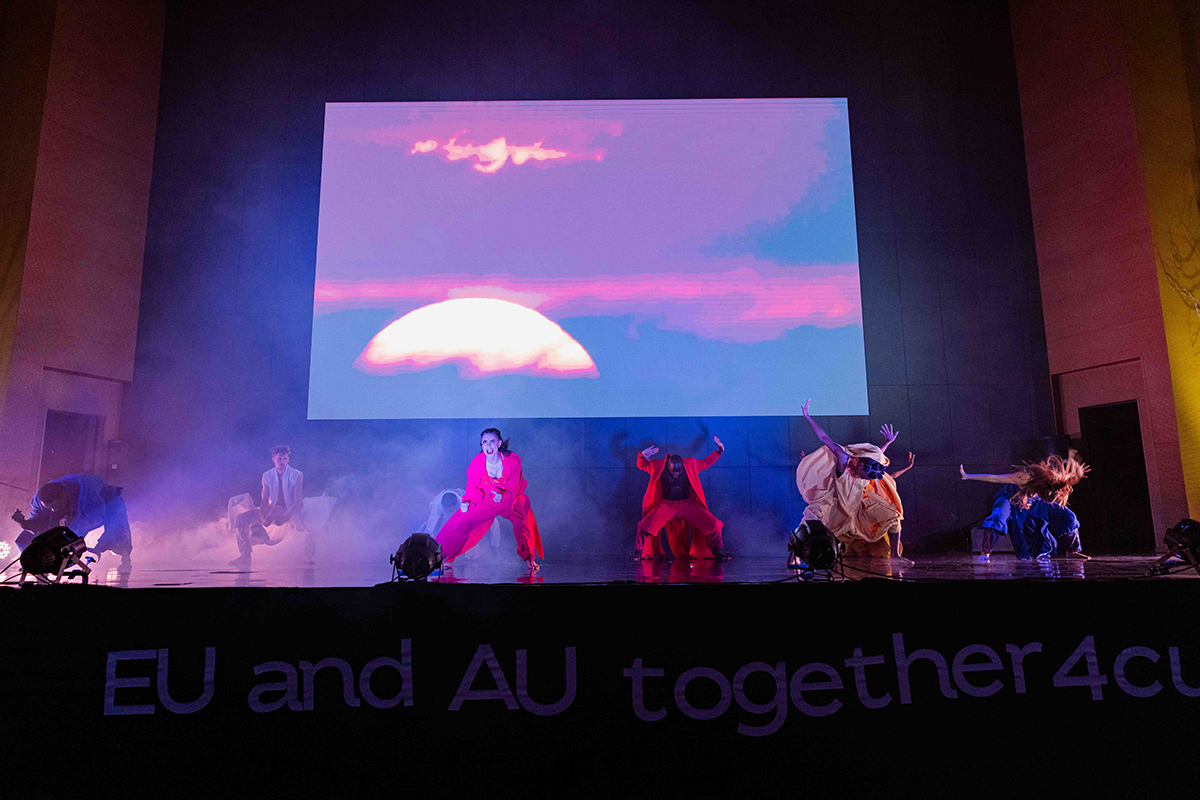MAISHA Dance
Afro-European Collaboration
2024
︎ Cross-cultural collaboration
︎ Artistic Residency
︎ Performances
about MAISHA dance
“MAISHA (Swahili word for ‘life’) is an Afro-European cultural experiment. Created in 2019 in Addis Ababa, Ethiopia, by the European Union Delegation to the African Union, the project is a testimony of collaboration & co-creation, the power of art to unite and an example of Africa-Europe cross-border cooperation and intercultural dialogue and solidarity, spreading shared values of coexistence and humanity.”
More info here ︎
https://maishaculture.com/
CHOREOGRAPHER | Serge Aimé Coulibaly
ARTISTIC DIRECTOR | Aïda Colmenero Dïaz
ASSISRANT CHOREOGRAPHER | Dalanda Diallo
SCENOGRAPHY/COSTUME VISUAL CONCEPT | Aïda Colmenero Dïaz
COSTUME DESIGN | Yonael Marga
MUSIC COMPOSITION | Kebero Band
MUSICIANS | Teferi Assefa (percussion), Jorga Mesfin (saxophone and keyboard), Tasew
Wendim (washint and vocals), Asrat Bossena (Massenquo and vocals)
DANCERS | Gustaf Mac Kobus, Yao Tchinvier Quentin Konan, Yasmine Lindskog Visanko,
Deborah Lotti, Paulin Aby Maindron, Refiloe Mogoje, , Brian Otieno Oloo, Rubina Suzeth

As part of MAISHA dance, I was one of 8 dancers selected out of over 1,000 applicants. Alongside 4 dance artists from African countries and 4 dance artists from European countries, I participated in a 3-week residency that culminated in a final performance at the Adwa Victory Memorial in Addis Ababa, Ethiopia. The group of artists were from Burkina Faso, Belgium, Spain, Angola, Côte d'Ivoire, South Africa, France, Sweden, Ethiopia, Kenya, Lithuania, and Germany.
“Daland@ is a dance piece that embodies a wealth of heritage, underscoring the significance of traditions and values within communities. It resonates with pride, connecting individuals to their roots and highlighting the profound importance of cultural heritage. Daland@ is not just a name; it’s a symbol of honoring origins while embracing individuality. This performance serves as a testament to the transformative power of art, transcending boundaries and fostering unity among diverse cultures.
We contemplate the present and the past of Europe and Africa in their entirety, acknowledging both virtues and flaws, to envision and shape a better future. Drawing inspiration from Felwine Sarr’s reflections we need to rehabilitate cultural values such as dignity, coexistence, hospitality, mutuality, modesty, humility, and a sense of honor to revive the profound humanism of our cultures. Among the various sequences that structure the temporalities of human societies, the future is the one temporality upon which we can actively set ourselves, by conceiving and shaping it.”





